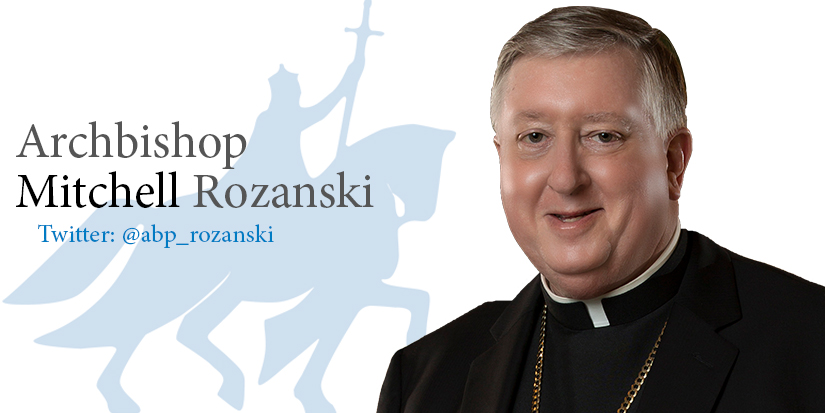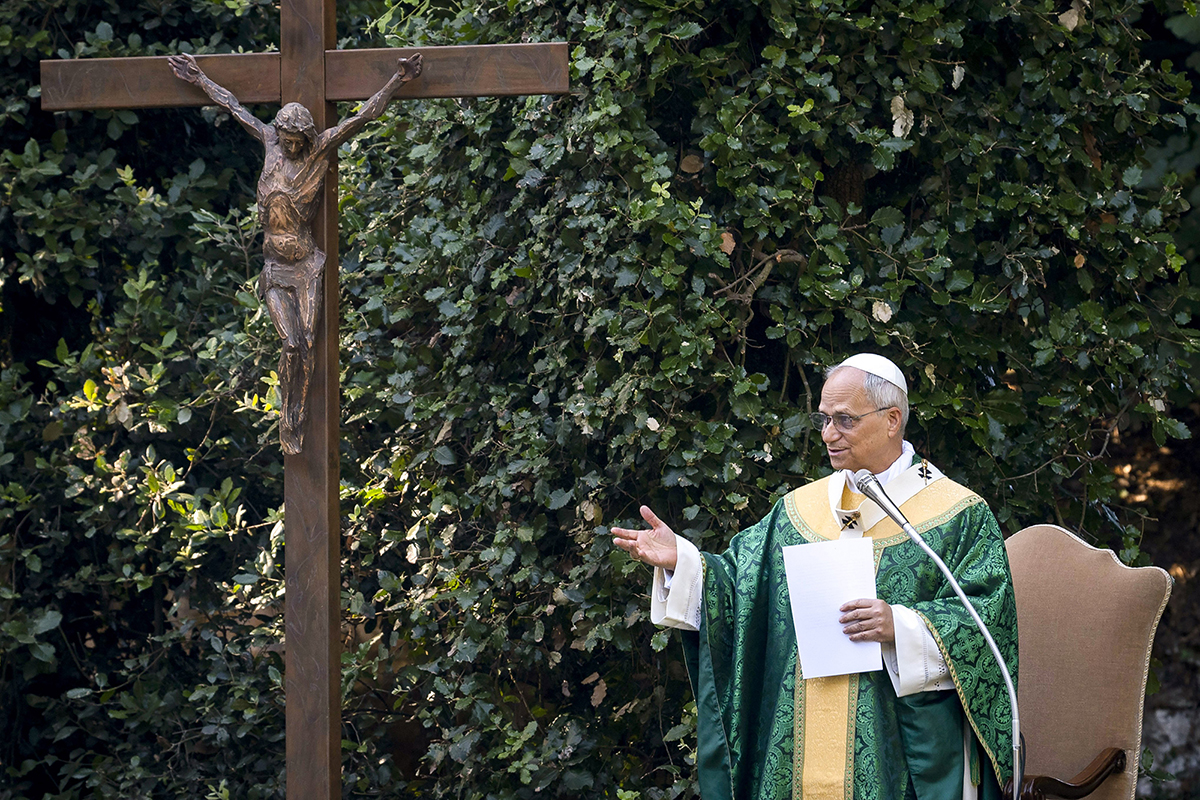SERVE THE LORD WITH GLADNESS | Though present everywhere, God is found in special ways in certain places
Showing, instead of stating, that faith is important can help heal our culture, which appears to be complacent

Dear brothers and sisters in Christ,
Does place matter in our relationship with God?
In many ways it doesn’t, because God is everywhere. That’s why the first thing the Catechism of the Catholic Church says about the matter, quoting from John 4, is: “The worship ‘in Spirit and truth’ of the new covenant is not tied exclusively to any one place” (CCC 1179).
But let’s reflect together, for a few minutes, on the ways place does matter, and why that might be important for us.
In this week’s readings, we hear about the healing of Naaman, an army commander from Syria who was afflicted with leprosy. He came to Israel, to the prophet Elisha, to be healed. Elisha told him to wash seven times in the Jordan River.
At this point, Naaman objected. You could summarize his objection this way: “You have got to be kidding me! The rivers in Syria are every bit as good as this muddy Jordan. You can’t tell me there’s something special here that I couldn’t find there.”
The response to Naaman’s objection could be put this way: well, make an experiment for yourself and find out.
Naaman’s servants prevailed on him to try. And he did. And he came out of the water healed. He made an experiment, and the evidence was clear. There is something special about this place, something that can’t be found elsewhere. Naaman learned for himself what Israel already knew: this is the Promised Land, and place makes a difference. At the end of the episode Naaman took home two mule loads of soil — a recognition that God is present here, in this land, in a way that He isn’t present anywhere else.
It’s not so foreign to our experience, actually. People visit the Holy Land or Assisi and say: “There’s something about this place.” People visit Auschwitz and say the same. Closer to home, we might visit Gettysburg, or the hotel in Memphis where Martin Luther King Jr. was shot, or the shrine of St. Rose Philippine Duchesne in St. Charles, or simply go back to the house where we grew up — and our own experience tells us that, in some ways, place matters.
Why might that be important to us?
For one thing, because our culture is engaged in a massive experiment. An increasing number of people claim no religious affiliation. The percentages are dramatic when it comes to young adults. What they’re saying is: faith doesn’t matter.
We know, from history, how this experiment turns out. Every time Israel becomes complacent in the Old Testament, it leads to collapse, and the collapse needs to be healed. The same is true in the history of individuals, marriages, parishes and nations. Complacency leads to collapse; collapse needs to be healed. Increasingly, that’s the path our culture is taking.
We can respond by insisting that faith is important. A better response is showing that faith is important. And part of showing that faith is important is giving witness to how place matters. It matters whether we show up for Mass. It matters whether we go to confession. It makes a difference when we spend time in adoration. Sure, God is everywhere. But, like Naaman, we’ve made the experiment, and discovered that He’s present in the Mass, and in confession, and in the adoration chapel, in a way that He isn’t present elsewhere. We can bear witness to that and invite others to find out for themselves.
Does place matter? Yes and no. We can encounter God anytime, anywhere. But the Bible tells us that place matters. And our own experience tells us that place matters. Let’s not be too quick to say that place doesn’t matter when it comes to the life of faith.
Dear brothers and sisters in Christ, Does place matter in our relationship with God? In many ways it doesn’t, because God is everywhere. That’s why the first thing the Catechism … SERVE THE LORD WITH GLADNESS | Though present everywhere, God is found in special ways in certain places
Subscribe to Read All St. Louis Review Stories
All readers receive 5 stories to read free per month. After that, readers will need to be logged in.
If you are currently receive the St. Louis Review at your home or office, please send your name and address (and subscriber id if you know it) to subscriptions@stlouisreview.com to get your login information.
If you are not currently a subscriber to the St. Louis Review, please contact subscriptions@stlouisreview.com for information on how to subscribe.





